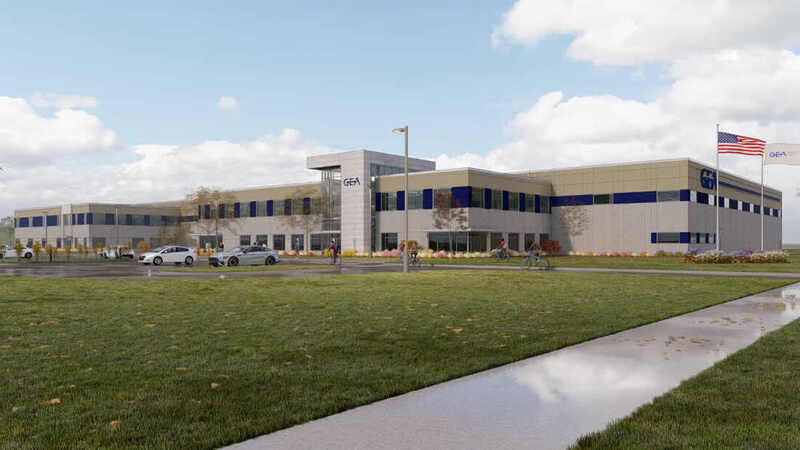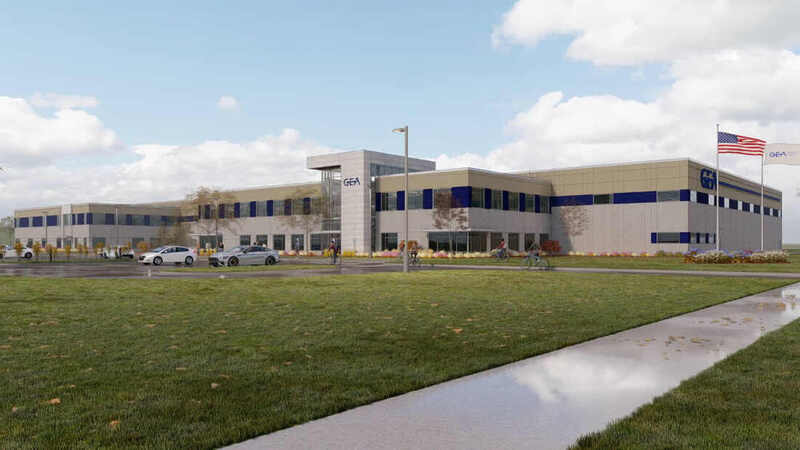GEA commits €18m to alternative protein technology centre


The new food innovation center on the GEA Campus in Janesville, USA, will be used to evaluate processes for the production of new food on a transferable pilot scale. Rendering: GEA
GEA is investing €18m ($20m) in a technology centre for alternative proteins in the state of Wisconsin, USA for sustainable alternatives to meat, dairy, seafood and egg.
The new food tech hub will pilot microbial, cell-based and plant-based foods. and GEA state-of-the-art technologies and a team of biotechnology experts form the basis for scaling new food for industrial production, which is increasingly in demand in the USA.
The USA is one of the countries promoting the development of sustainable food options through favourable regulation and openness to innovative food technologies.
The centre, at the new GEA campus in Janesville, is scheduled for spring of 2024, with the opening to follow one year later.
“A number of new food pioneers in the USA are already writing innovation history. When it comes to industrial production, the market is still on the starting blocks. GEA’s new food centre bridges a gap in the innovation landscape, driving forward the development of complementary proteins through technology,” says Dr. Reimar Gutte, senior vice president liquid and fermentation technologies, leading new food at GEA.
“Most new food companies are located in North America and the bulk of the investments in alternative proteins flow into this region. Consequently, there is an urgent need for scaling facilities like ours,” says Arpad Csay, who leads GEA’s North American new food business. “The GEA platform in Janesville will enable manufacturers to conduct their scaling and testing work without the need to invest in their own capital-intensive infrastructure. In this way, we will help overcome scaling challenges and accelerate the industry’s growth.”
GEA also intends to promote the training of biotechnology specialists in the 10,000 square-metre building.
This project marks GEA’s second investment in a new food hub, which fast-tracks innovations from the lab to commercial-scale manufacturing. Prior to this, GEA inaugurated its technology centre focusing on cell cultivation and fermentation in Hildesheim, Germany, in June 2023.
One dedicated business line is working on technologies and full production lines for microbial proteins or proteins cultivated in bioreactors, plant- or fungi-based foods, as well as innovative hybrids combining plant-based products with proteins produced using biotechnology.
Related content
Source: foodanddrinktechnology.com

